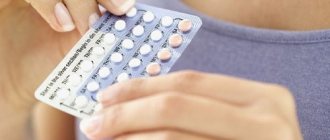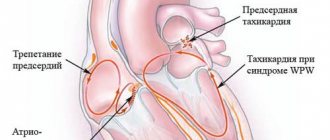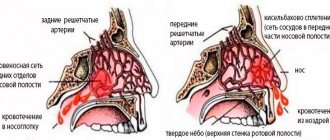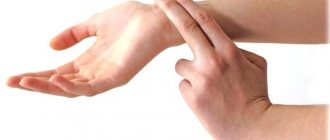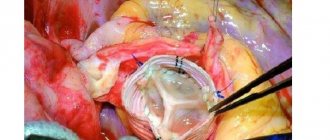Why are high rates dangerous?
The pulse is constantly changing. Many factors contribute to changes in heart rate, including:
- physical activity;
- Times of Day;
- age;
- weather;
- hormonal changes or fluctuations;
- emotional stress.
A healthy heart rate varies from person to person. However, for most people, a normal heart rate is between 60 and 100 beats per minute (bpm).
| Age, years | Normal pulse (bpm) | Maximum heart rate (bpm) |
| 20 | 100 – 170 | 200 |
| 30 | 95 – 162 | 190 |
| 40 | 93 – 157 | 185 |
| 45 | 90 – 153 | 175 |
| 50 | 88 – 149 | 170 |
| 55 | 85 – 145 | 165 |
| 60 | 93 – 140 | 160 |
| 65 | 80 – 136 | 155 |
| 70 | 75 – 128 | 150 |
If your heart rate increases as a result of emotional stress or environmental factors, treating the cause is the best way to lower your heart rate.
Ways to reduce sudden changes in heart rate:
- deep breathing, holding your breath while inhaling;
- unbutton tight clothes;
- relaxing and trying to remain calm;
- apply a cold compress to the head using a wet towel or a bottle of cold water;
- tension and relaxation of the abdominal muscles;
- provide fresh air flow by opening windows;
- walk, ideally away from the urban environment;
- a warm, relaxing bath or shower;
- Stretching and relaxation exercises, such as yoga.
You can quickly lower your heart rate with medications, but before taking them you should consult a doctor, because the cause of an increased heart rate may be illness.
Tablets that lower the pulse can be sedative or stabilizing the heart rate.
Calming pills that will help lower your heart rate:
- validol;
- Corvalol;
- valerian tablets or tincture;
- valocordin;
- motherwort tinctures.
If you need to lower your heart rate or stabilize it on an ongoing basis, your cardiologist can prescribe appropriate heart rate-lowering medications. These can be drugs from different groups:
- Beta blockers, for example Bisoprolol, Celiprolol, Concor, Practolol, Timolol, Metoprolol, Anaprilin, Atenolol, etc.
- Calcium channel blockers, for example Verapamil, Solatol, Amiodarone, Ibutilide, Corinfar, etc.
- Preparations with membrane-stabilizing substances, for example Lidocaine, Ethacitazine, Propafenone, Difenin, Ethmozin, Mexitelin, Aymalin, etc.
- Cardiac glycosides digoxin, celanide, etc.
Folk remedies will help lower your heart rate at home. Such means include:
- Valerian. Boil the dried valerian for 5 minutes, then strain. Drink a tablespoon three times a day before meals. You can also use a tincture purchased at a pharmacy.
- Motherwort. Pour one tablespoon of motherwort with 200 grams of boiling water and leave for two hours. Take one tablespoon before meals for two weeks, this will help lower your heart rate.
- Rose hip. Boil two tablespoons of chopped rose hips for 20 minutes. Drink one glass a day.
- Honey. Honey can be consumed as conveniently as possible - with tea, chamomile or other ways to lower your heart rate.
- Mint and lemon balm. In the form of tea, they act as a sedative and help lower the pulse.
- Black currant. Currants in any form - jam, ground with sugar can be added to tea.
Many lifestyle habits can help lower your heart rate in the long term. They may also improve the ability to maintain a healthy heart rate during physical activity and stress.
The following tips may help lower your heart rate in the long term:
- Physical exercise. The easiest and most effective way to achieve a long-term reduction in heart rate is to do regular exercise.
- Drink plenty of fluids. When the body is dehydrated, the heart must work harder to stabilize blood flow. Drink plenty of sugar-free and caffeine-free drinks such as water and herbal tea throughout the day.
- Limit your intake of stimulants, such as caffeine and nicotine: stimulants can cause dehydration, increasing stress on the heart.
- Limit your alcohol intake: Most forms of alcohol dehydrate the body. Alcohol is also a toxin, and the body must work hard to process and eliminate it. Reducing your alcohol intake will help lower your heart rate.
- Eat a balanced diet: A diet rich in fruits, vegetables, protein, nuts and legumes can help improve heart health as well as overall health.
- Foods and supplements rich in antioxidants and healthy fats may lower blood pressure and improve heart function.
- Heart-healthy substances include: omega-3 fatty acids, which are found in fish, lean meats, nuts, grains and legumes. Phenols and tannins found in tea, coffee and red wine (when consumed in moderation). Vitamin A, found in most leafy green vegetables. Dietary fiber found in whole grains, nuts, legumes and most fruits and vegetables. Vitamin C, which is found in citrus fruits, leafy greens and bean sprouts. All these substances improve heart function and help lower heart rate.
- Regular sleep. Chronic lack of sleep strains the body, including the heart. An adult should sleep from 7 to 9 hours a day.
- Maintain a healthy body weight. Excess weight also puts stress on the body and heart. It's hard to lower your heart rate if you're overweight.
- Reduce the impact of stress.
- Walks in the open air. Research shows that people who spend more time in nature, even just a short walk in the woods or park, tend to be happier and less stressed than people who don't.
- Practical relaxation techniques: Activities that increase self-awareness, such as meditation and guided visualization, can help reduce stress when practiced regularly.
All these remedies will help lower your heart rate with normal, high and low blood pressure.
So, what pills can help. There are so-called beta blocker medications:
- Atenolol,
- Metoprolol,
- Bisoprolol.
You can normalize your heart rate with calcium channel blockers such as Verapamil or Diltiazem.
The pulse rate depends on the age group, gender, body type and physical activity of the patient.
- Average normal heart rates for adults range from 60 to 90 beats per minute.
- In children and adolescents, due to the actively growing heart muscle, the normal rate is 100 beats per minute.
- In pregnant women, a heartbeat of up to 110 beats is not considered a deviation.
Tachycardia at rest is fraught not only with negative symptoms that adversely affect the patient’s performance, but also with the development of life-threatening diseases such as heart attacks, strokes, embolism and a sharp decrease in myocardial contractions, leading to insufficient blood supply to vital organs.
If characteristic symptoms appear, expressed in dizziness and disturbance of spatial orientation, pain in the chest, vomiting, general weakness, difficulty breathing and increased sweating, you should immediately seek medical help.
In cases of sudden onset of tachycardia attacks, before medical help arrives, it is necessary to calm down, take a comfortable position, wash with cool water and provide access to fresh air.
You can also lower your heart rate without lowering your blood pressure using certain procedures.
Massage
Lightly massaging the front of the neck in the area of the carotid artery for several minutes is the first way to reduce and normalize heart rate without reducing blood pressure.
Aschner's test
In a supine position, the patient is pressed several times on the eyeballs for 30 seconds. In this case, the pulse decreases by at least 10 beats.
To provoke gag or cough reflexes, you should press on the root of the tongue or lie on your stomach for half an hour with your face down.
Holding your breath excites the vagus nerve, which affects the decrease in heart rate. It is best to hold your breath while inhaling, lower your face into a container of ice water, after pinching your nose. After a few seconds, remove your head and exhale.
If the above manipulations do not bring the expected result, it is recommended to resort to traditional medicines or potions from the arsenal of traditional medicine.
However, there are a number of medications, both natural and synthetic, that do not affect blood pressure. Here's what and how you can lower your heart rate at home without lowering your blood pressure:
- Tincture of valerian root or motherwort.
- Validol or Corvalol, which have a sedative effect.
- Relanium, which greatly reduces the number of heartbeats, should be taken only on the recommendation of a specialist.
- Persen, which has a calming effect and reduces heart rate.
Folk remedies
Traditional medicines are characterized by the absence of side effects and good effectiveness. How to lower your heart rate without lowering your blood pressure:
- A decoction of rose hips and calendula is prepared by brewing the plants, taken in equal parts, followed by infusion for half an hour in a dark place. Consume daily after meals.
- Honey can be used in its pure form or added to tea a few teaspoons.
- To prepare lemon tincture, fresh lemon juice is mixed with the juices of chokeberry, cranberry and carrot. Add diluted medical alcohol to the mixture and mix thoroughly. The resulting tincture is taken 15 ml before meals three times a day.
The pulse is a shock inside the vessels and arteries that occurs under the influence of contraction of the heart muscle. The pulse rate and rhythm of pulsation make it possible to determine not only the strength of the heartbeat, but also the state of health of the vascular system.
Normally, the intervals between pulse beats should be equally uniform. Different frequencies and strengths of pulsation indicate a malfunction of the heart muscle or endocrine system.
Normal heart rate values vary for different categories of people:
- for children aged 0-6 years, a pulse of 110-140 beats per minute is considered normal;
- from 6 to 12 years – 80-100 blows;
- teenage pulse rate is 75 beats per minute;
- adults, up to 50 years old – 70 strokes;
- elderly, 50 and above – 75-80 beats.
Recommendations for low heart rate, what not to do
When experiencing palpitations, many people, when visiting a cardiologist, would like to know how to quickly lower their heart rate at home with normal, low and high blood pressure. Recommendations for lowering heart rate depending on the state of health and blood pressure are given by Vera Olegovna Chubeiko, Candidate of Medical Sciences, practicing physician in the cardiology department.
Before you begin studying the material, remember the following:
- The cause of this condition may be some kind of disease, without treatment of which it will be possible to normalize the heart rate only temporarily.
- A rapid pulse can be a compensatory reaction of the body, for example, during a fever, and lowering the pulse in such a situation would be a mistake. Therefore, it is better to consult a doctor - a local therapist, a cardiologist, or call an ambulance, where they can simply advise you over the phone and, if necessary, send a team of doctors.
- A person makes his own decisions about how to look after his health. Therefore, our article will contain information on how to lower your heart rate at home, depending on its value, pressure, as well as different methods of treating increased heart rate.
- Self-medication can be dangerous to your health, be careful and be sure to consult your doctor.
Heart rate 95 – 100 beats
If the pulse is 95 - 100 beats per minute, the cause of this condition may be:
- exercise stress;
- sudden positive or negative emotions;
- lack of sleep;
- fever;
- pregnancy;
- mild anemia;
- diseases of the thyroid gland or lungs;
- hypertension and neurocirculatory dystonia;
- heart failure.
At this heart rate there is no need to worry too much. In itself, a slightly accelerated heartbeat does not harm the myocardium and health in general. Typically, a person worries rather because of an unusual heart rate, and does not experience pronounced complaints.
What to drink when your heart rate is 95–100 per minute to bring it down? The best solution would be to take one of the following sedatives:
- Valerian tincture;
- motherwort tincture;
- peony tincture;
- Novo-passit;
- Corvalol;
- Valocordin.
Medicines
The biologically active substances that make up valerian not only have a sedative effect, but also reduce the pulse. They affect the heart directly, changing its automaticity (ability to produce electrical impulses) and conductivity, thereby reducing the heart rate. The effect is better manifested when applied as a course.
An alcoholic tincture of motherwort not only slows down the pulse, but also slightly reduces blood pressure. It is well suited to bring down a high pulse during hysteria, irritability, neurasthenia, and the pathological course of menopause. The drug is also used in the initial stages of hypertension and to slow down the pulse at home in case of hyperthyroidism. Of the side effects, only occasionally an allergic reaction has been noted.
Tincture of evasive peony works well to reduce heart rate. It is especially effective in treating concomitant vascular disorders, for example, hot flashes or, conversely, cold hands and feet. It should not be taken if you are hypersensitive or have severe liver and kidney diseases.
The universal drug Novo-passit, which, in addition to valerian, includes lemon balm, St. John's wort, hops, hawthorn, passionflower, black elderberry, as well as a small amount of guaifenesin. This makes the drug one of the most effective means of helping to quickly bring down a high pulse. It is available in solution and in tablets, and the solution will act faster. Side effects include an allergic reaction.
Corvalol is a drug containing a derivative of valeric acid, phenobarbital and peppermint oil. It is used to quickly reduce the pulse when it increases to 140 per minute, especially in combination with a slight increase in pressure and stabbing pain in the heart area. With frequent heartbeats, a single dose of Corvalol can reach 40 - 50 drops. The drug is contraindicated in case of intolerance, severe liver and kidney diseases, as well as during breastfeeding.
Valocordin drops, unlike Corvalol, do not contain mint oil. All other characteristics of these two drugs are similar.
We list the remaining 9 medications that you can take to quickly reduce high heart rate at home:
- Drops Bromenval.
- Valemidin.
- Valeodicramen.
- Valerianahel (homeopathic).
- Valoserdin.
- Doppelhertz Melissa.
- Cardiovalen.
- Cravaleon.
- Notta (homeopathic).
Also good for lowering heart rate:
- Passidorm solution;
- Passifit syrup;
- Sedoflor tincture.
How to calm your pulse at home without resorting to medications? Stopping the load and resting in a reclining position will help here. Usually these measures are enough for the heartbeat to return to normal within 15 to 20 minutes.
What to do if the pulse is 110, 115, 120, or increased to 140 per minute? What medicine can you take to quickly lower your heart rate at home?
With such palpitations, you need to understand that more often its cause lies in a disease of the heart, lungs, thyroid gland or other organs. Sometimes it is associated with a sudden increase in blood pressure, “hot flashes” during menopause, and anemia. Therefore, self-medication can be dangerous to health.
How to quickly reduce your heart rate at home:
- stop the load;
- take a reclining position;
- open the window, reduce the temperature and humidity in the room;
- breathe slowly and measuredly;
- use one of the sedatives mentioned in the previous section;
- If you have a heart condition, you can additionally take one of the medications listed below.
What should be done?
How to measure pulse?
The easiest way to check your pulse is to place your index and middle fingers on your neck below the edge of your jawbone. Count the number of heartbeats in 60 seconds. Some people may also feel the pulse in their wrists.
Can count the number of heartbeats that occur in 30 seconds and then multiply the result by 2.
It is best to take your heart rate after periods of long rest. A person should ideally calculate their heartbeat first thing in the morning while still lying in bed.
Treatment for palpitations
The heartbeat is created by specialized muscle cells called myocytes. When these cells need more oxygen, as during exercise, the brain sends messages to the heart, causing the myocytes to fire stronger, more frequently.
Everyone experiences sudden, temporary changes in heart rate. They can be caused by:
- Emotional stress. Disruption or overload can trigger a stress response by increasing your heart rate.
- Weather: High temperature or humidity causes the body to work harder to cool down.
- Rapid change of body position.
- Physical exercise. During physical activity, the heart contracts faster to deliver blood and oxygen to muscle cells faster. The increase in heart rate will depend on how intense the exercise is.
- Drugs. Many medications, as well as drugs, can increase your heart rate.
- Fear or Terror: Fear, an extreme form of stress, distorts the adrenaline response, which increases the heart rate.
- Hormonal changes. Fluctuations in hormone levels, such as those that occur during pregnancy or menopause, can temporarily affect your heart rate.
Your heart rate usually decreases with age as the muscle cells in your heart become weaker.
Having a chronic high heart rate is often a sign of an unhealthy lifestyle or disease.
Common causes of elevated heart rate:
- lack of physical activity;
- poor nutrition;
- smoking;
- excessive alcohol consumption;
- hypertension or high blood pressure;
- use of medications or drugs.
Diseases and abnormalities in the body that can cause an increase in heart rate:
- anemia;
- mitral valve disease;
- abnormal thyroid or hormonal activity
- heart disease;
- heavy bleeding;
- disruption of internal organs.
- High heart rate, which occurs without the influence of external provoking factors, in most cases is provoked by the following diseases:
- chronic heart and vascular diseases;
- hormonal disorders;
- advanced forms of diseases of the respiratory system.
- In addition to diseases, taking certain medications can contribute to the development of tachycardia:
- antidepressants;
- diuretics;
- vasoconstrictors.
- Poor nutrition, excess weight, bad habits and frequent overwork can also increase your heart rate.
- In children, the cause of tachycardia can be disproportionate development of the heart muscle, which, as a rule, evens out over time.
- In elderly patients, rapid heartbeat is caused by post-infarction cardiosclerosis and disturbances in blood pressure levels, both upward and downward.
Cases of patients visiting medical institutions with complaints of increased heart rate are not uncommon. When classifying an existing symptom, you should understand the difference between pulse height and pulse rate. In the first case, we are talking about the degree of oscillations of the artery walls, in the second - about the number of contractions. A regular high pulse is considered a serious deviation and a sign of the presence of ailments that unite the human motor (heart) and blood vessels.
Often, an increased heart rate, which is not associated with physical or psychological stress, signals the presence of health problems.
There may be several reasons for the formation of tachycardia - high pulse:
- Diseases of the heart muscle. Most often, in addition to tachycardia, they also have some accompanying symptoms - shortness of breath, increased sweating, chest pain, dizziness. Damage to the heart valves or hardening of the artery can lead to difficulty pumping blood to the heart and, as a result, an increase in heart rate.
- Problems with the metabolic control function of the thyroid gland can also be a source of increased heart rate.
- Pathology of the upper chamber of the heart significantly weakens its muscles, as a result of which the pulse increases.
- With emphysema, a lung disease in which lung tissue loses its natural elasticity and over time causes tachycardia.
- Some medications can cause increased heart rate. These include antidepressants, diuretics, vasoconstrictor drops for the common cold, and some heart medications; in this case, medications should be selected based on the characteristics of the body.
Indirect reasons for the appearance of a high heart rate include an abundance of strong tea and coffee in the diet, smoking, overeating, and obesity.
In another article we also talk a lot about the causes of low blood pressure and increased heart rate.
Find out whether you can take Corvalol with a low heart rate here.
It is easier to prevent any problem than to deal with the consequences. The same applies to increased heart rate, which occurs against the background of a sedentary lifestyle, obesity, overeating, and if no measures are taken, it transforms into serious diseases.
To prevent cardiovascular and other diseases that lead to increased heart rate, you should follow simple recommendations:
- limit the consumption of strong tea and coffee;
- quit smoking;
- remove excess weight;
- load the body with small physical exercises, especially with a sedentary lifestyle;
- normalize your sleep schedule, devote at least 8 hours a day to it;
- reduce the amount of fatty and salty foods you consume, as they place additional stress on the heart;
- drink at least 1 liter of water per day;
- reduce emotional stress, or use mild sedatives such as valerian;
- eat enough fortified foods, especially seasonal vegetables and fruits.
Following simple rules can not only prevent the occurrence of serious diseases, but also generally improve the quality of life.
A high pulse with normal blood pressure can occur due to the following reasons:
- Stress. Emotional stress can cause cardiac tachycardia. You can calm your nervous system with herbal tea.
- Endocrine system, especially problems in the thyroid gland. Additionally, symptoms such as mood swings, increased irritability, insomnia, and disruption of the gastrointestinal tract may occur.
- With normal blood pressure, a rapid heartbeat may occur. This disorder is called tachycardia. This condition can occur with food poisoning, anemia and acute heart failure. This problem can only be solved with the help of a specialist.
- Binge eating. People who love to eat delicious food often notice an increased heart rate. It occurs due to overload of the stomach. You need to try to control yourself and not overeat, especially before bed.
- Toxication of the body from drinking alcoholic beverages.
- Side effects from taking medications.
Methods of rehabilitation therapy depend directly on the cause of the occurrence. There are two main methods - treatment with folk remedies or medications.
In this case, drugs to calm the nervous system help well, especially if they are based on herbs. For example, “Diazepam”, “Novo-passit”, tincture of valerian or motherwort. Additionally, it is necessary to use antiarrhythmic drugs. They are designed to smooth out disruptions in nerve impulses. For example, Adenosine and Verapamil. But these drugs are available only by prescription, and treatment takes place in the hospital only under the supervision of a doctor.
One important rule must be remembered: the course of treatment must be completed over a certain period of time. All medications can act in the body only cumulatively. It is advisable to try to be as nervous and tired as possible and limit the consumption of harmful foods.
You can calm the nervous system with herbal decoction or tea. It could be:
- chamomile,
- motherwort,
- lemon balm,
- caraway,
- hop,
- St. John's wort.
You can add honey or lemon to the broth.
Pregnancy
Sometimes the cause of a heart rhythm disorder may be hidden in pregnancy, especially in the last trimester. The main causes of tachycardia during pregnancy are as follows:
- Insufficient amounts of microelements. Moreover, the expectant mother needs them for two.
- Sudden weight gain.
- Acceleration of metabolic processes within the body.
Additionally, shortness of breath, frequent headaches and dizziness, and pain in the chest may occur. In most cases, the disease is absolutely easy and simple, and there is no need to take pills.
Reasons for the development of tachycardia
Normally, a person’s pulse should not exceed 60-80 beats per minute. With the development of tachycardia, the number of heart contractions in 60 seconds can reach 120-150 beats. The reasons for this deviation can be both physiological and pathological.
Physiological factors
Physiological reasons for rapid heartbeat may include:
- in experienced stress or psycho-emotional shock;
- physical or mental stress;
- physical training characterized by excessive intensity;
- lack of sleep;
- oxygen starvation;
- overweight;
- abuse of salty foods;
- addiction to alcoholic beverages;
- smoking;
- abuse of coffee and other caffeinated drinks.
Tachycardia is often observed in women during pregnancy, when an additional load is created on the body as a whole, and on the heart in particular. It can also manifest itself as the body’s reaction to the sudden withdrawal of certain medications.
Pathological causes
Often the causes of increased heart rate are diseases occurring in the human body. The development of tachycardia can occur:
- for heart defects (congenital and acquired);
- diseases of the thyroid gland (hyperthyroidism);
- anemia;
- hypoglycemia (low blood glucose levels);
- heart diseases – endocarditis, myocarditis, etc.;
- pulmonary embolism;
- infectious pathologies;
- the presence of tumors of various natures and localizations.
In older people who have decreased blood vessel tone, such a deviation is often observed against the background of increased blood pressure.
Before taking drugs to lower your heart rate, you need to find out exactly the causes of tachycardia, and only a doctor can do this!
Symptoms
To correctly determine the pulse, there are 3 methods:
- You can personally count the number of pulse beats using a stopwatch. Time 1 minute and place 2 fingers on a pulsating vein in your wrist or neck, then begin counting.
- Counting your pulse using a stethoscope may require some skill. To measure, you need to attach the diaphragm of the stethoscope (the round flat part) to the place where you feel the pulse, for example, on the wrist and insert headphones into your ears. Then you need to time the minute and count the number of pulse beats.
- To measure your heart rate, you can use electronic devices in the form of wristwatches, which are sold in sports stores. They are often used by athletes to monitor their heart rate during training.
All methods can give an accurate result, provided that the shocks are carefully counted.
Symptoms of increased heart rate may differ depending on the type of tachycardia:
- Sinus tachycardia occurs against the background of physical stress of the body. It is characterized by a feeling of tremors inside the chest, shortness of breath and slight dizziness. After stopping physical exercise, sinus tachycardia stops on its own after a short period of time.
- Paroxysmal tachycardia is accompanied by nausea, general weakness in the body, and painful sensations in the heart area. Often aggravated by loss of consciousness and respiratory disorders.
It often happens that the pulse is elevated and the blood pressure is low.
There may be several reasons for this phenomenon:
- dehydration caused by repeated vomiting or diarrhea;
- heatstroke;
- heavy bleeding;
- acute pancreatitis;
- heart diseases - pericarditis, weakened heart muscle, embolism.
In all these cases, timely medical attention is required to avoid possible serious and difficult-to-treat consequences.
Symptoms of increased heart rate can be classified as relatively harmless and dangerous to the body’s functioning. If life-threatening symptoms are detected, immediate medical attention is required.
These include:
- severe chest pain, stuffy ears, choking, severe weakness and a feeling of anxiety accompanied by increased heart rate may indicate a heart attack, which requires immediate medical attention;
- impaired consciousness, nausea, vomiting, sudden weakness, severe dizziness, darkening of the eyes and tachycardia may indicate a stroke;
- profuse cold sweat, difficulty breathing, anxiety, cough, shortness of breath and swelling of the extremities signal a heart attack.
The dangerous symptoms described above cannot be ignored, otherwise it may result in death or disability. If you discover these symptoms in yourself or someone else, you should immediately call emergency help.
But if these manifestations are repeated repeatedly, they can lead to loss of consciousness and the development of heart failure.
What should be done?
First of all, treatment of the disease begins with eliminating the cause of tachycardia. For example, if the cause of tachycardia is hidden in anemia, thyrotoxicosis or a septic process, then treatment must be used to solve these problems. If there are diseases of the endocrine system, it is necessary to eliminate these disorders.
Treatment of vegetative-vascular dystonia begins with taking medications to calm the nervous system or antidepressants. If the disease was detected in time, then Valerian, Diazepam or Persam will help well. They will help partially normalize the functioning of the heart.
How to lower your heart rate
There are differences in ways to lower your heart rate under different circumstances:
- High pulse with normal blood pressure. Occurs when there is increased physical or psychological stress on the body. In this case, in order to quickly lower your heart rate, you must follow these recommendations:
- unbutton tight clothes;
- open the windows to provide fresh air;
- apply a cool compress to your head, for example, from a wet towel;
- try to reduce your pulse by holding your breath while inhaling;
- take a horizontal position.
- An increased pulse with high or low blood pressure requires, in addition to following the recommendations described above, taking medications to lower the pulse. These include validol, valerian, valocordin, motherwort, and corvalol.
Medicines to quickly lower heart rate remove the symptom, not the cause. Therefore, if you notice symptoms of an increased heart rate, you should consult a doctor to determine the cause.
You will also be interested in learning how to increase blood pressure without increasing your heart rate.
Heart rate may increase in a healthy person. It is possible to stabilize the pulse in the absence of cardiovascular disease without the use of drugs. If the patient has high or low blood pressure, increased heart rate during pregnancy or after severe stress, then it is recommended to eliminate the symptom with special medications.
It is recommended to reduce a rapid pulse with elevated blood pressure after prior consultation with a specialist. In most cases, this combination is a symptom of hypertension. In this situation, it is important to eliminate the underlying disease, and the pulse returns to normal automatically.
At low
Low blood pressure is accompanied by symptoms such as headache, nausea, vomiting, and a feeling of fear. The most effective way to reduce heart rate in this case is to take motherwort or valerian tincture. The best medications to take are Valocardin or Validol. If your heart rate increases regularly, you should make changes to your diet.
During pregnancy
Women should be aware that heart rate may change during pregnancy. A rapid heart rate during pregnancy can occur constantly or suddenly. It is not recommended to take medications without specialist prescriptions at such times. During pregnancy, you need to control your diet, avoid overeating, and eat ingredients that have a beneficial effect on the cardiovascular system. During attacks of increased heart rate, it is recommended to try to relax, calm down, and take a comfortable position.
Treatment of tachycardia at home is not difficult. A proper diet, regular physical activity, and health monitoring are the nuances that are the key to proper heart function. With an increased heart rate, it is important to identify external factors that negatively affect the cardiovascular system. Stress, depression, eating certain foods, and the presence of internal diseases can increase heart rate.
Rules to follow when regularly increasing your heart rate:
- excess weight causes an increase in heart rate, so your body weight must be controlled;
- if you can’t control your emotions, then to stabilize the functioning of the central nervous system you need to use sedatives;
- It is necessary to consume foods that cause stimulation of the cardiovascular system with caution;
- insomnia should not be ignored (the consequences can become complications of the health condition);
- with regular pulse fluctuations, you need to give up bad habits;
- fresh air has a beneficial effect on the functioning of the heart and blood vessels;
- sedative decoctions should be used for prevention, without waiting for symptoms to appear.
Aschner's test
Medications
Prolonged or regularly occurring tachycardia can lead to the development of heart failure, so such conditions require mandatory adjustments to the daily regimen, as well as drug therapy. In addition, the type of pathology and accompanying symptoms should be taken into account. The easiest to treat with drug therapy is the so-called sinus tachycardia, which is usually caused by fatigue or increased (or, alternatively, decreased) physical activity.
Drugs for the treatment of sinus tachycardia:
- Valerian.
- "Validol".
- "Valocordin".
- "Persen."
- "Relanium".
- "Seduxen".
- Motherwort tincture.
- Peony root.
The most dangerous form of tachycardia is ventricular, in which sedatives do not help, and in some cases cause additional health problems. To stop attacks, antiarrhythmic drugs are usually used, which are also available in many suitable types.
Membrane stabilizing drugs
They, in turn, are divided into three subgroups. These are calcium channel stimulants (Difenin, Lidocaine, Mexiletine). Sodium channel blockers - "Ajmalin" and enhanced sodium channel blockers - "Etomosin", "Flecainide", "Etacitacin" and "Propafenone". They are represented by synthetic drugs, therefore they have certain contraindications and side effects.
In addition, when prescribing a drug, blood pressure must be taken into account. As a rule, it is also increased when the heart rate increases. The listed drugs, which reduce not only the pulse, but also the blood pressure, are used to suppress an attack and prevent complications in the functioning of the cardiovascular system.
Beta blockers
This group effectively lowers HR (heart rate) by blocking sympathetic nerve signals. With regular use, a long-lasting therapeutic effect is observed. Beta-blocker drugs are part of complex therapy for cardiovascular diseases and help maintain blood pressure at a normal level. They must be taken according to a regimen specially developed by a cardiologist.
In these cases, the following means are used:
- "Anaprilin."
- "Acebutolol."
- "Alprenolol."
- "Atenolol."
- "Bisoprolol."
- "Concor".
- "Practolol"
- "Metoprolol."
- "Timolol."
- "Oxprenolol."
- "Celiprolol."
The effects occur in a complex manner: on the walls of blood vessels and the rhythm of heart contractions. Such drugs reduce blood pressure, therefore they are often used in the complex treatment of hypertension (high blood pressure).
Calcium channel and ion blockers
Medicines for high pulse with normal or low blood pressure are selected from this group. They increase the electrical potential, which allows the heart ventricles to contract. This blocks nerve impulses, allowing you to lower your heart rate without lowering your blood pressure.
The most popular drugs in this group are:
- "Amiodarone";
- "Dofetilide";
- "Dronedarone";
- "Ibutilide";
- "Sotalol."
The choice of drug should also be agreed with the attending physician according to individual indications. If blood pressure is low, it is not recommended to use sedatives as they can worsen the condition. At the same time, well-chosen tablets for high heart rate can lower the heart rate without lowering blood pressure.
Cardiac glycosides
The main effect of such drugs is to block potassium and calcium channels. The composition contains natural extracts of foxglove and lily of the valley, there are contraindications and side effects. The most common tablets for high heart rate in this group are Celanide, Digoxin and Korglykon. For a faster effect, these products are available in the form of an injection solution.
Traditional recipes for lowering heart rate
To reduce heart rate using folk methods, many medicinal herbs and berries are used. Based on some of them, pharmaceutical preparations in tablets are manufactured.
How to lower your heart rate using folk recipes:
- Rosehip decoction for increased heart rate and low blood pressure. To prepare it, 2 tablespoons of crushed dried rose hips are poured into 500 ml of hot water and infused for an hour. Take a glass of drink per day.
- Motherwort infusion is prepared using a pharmaceutical collection of motherwort and calendula. 1 tablespoon of the medicinal mixture is poured into 200 ml of hot water and infused for 2 hours. Take 1 tablespoon before meals for 14 days.
- Valerian not only has a calming effect, but also reduces heart rate. Dry grass is poured with boiling water and boiled for 5 minutes, then filtered. Take 1 tablespoon 3 times a day before meals.
In addition to herbal medicinal preparations, the following remedies are often used:
- chamomile tea with honey;
- blackcurrant jam;
- mint or lemon balm tea;
Traditional recipes can be used both in combination with drug treatment and as independent methods of equalizing the pulse.
- Combine 2 tablespoons of freshly squeezed carrot juice and the same amount of alcohol, 3 tablespoons of cranberry juice, 1 tablespoon of chokeberry and squeezed lemon juice.
- You need to take 1 teaspoon each of celandine and dried hawthorn. Fill with hot water and boil a little. Leave to brew overnight in a dark, warm place.
- A very intensive remedy helps restore heart function. For this you will need apricot kernels, lemons and honey. Clean the seeds and turn into a paste using a blender. Lemons also need to be grated. Combine all ingredients.
- Mint and lemon balm. Add two ingredients in equal quantities and add boiled water. Take as tea. This remedy has a preventive and therapeutic effect.
- Hop cones have a good healing effect. This drink should be consumed every day in the form of tea.
If you have a rapid heartbeat after taking certain types of medications (pills), this may be a side effect.
Other causes of tachycardia:
- Oncology education.
- Adrenal gland dysfunction.
- Sudden changes in pressure.
- Meteosensitivity.
- Allergic reaction of the body.
- Insomnia.
- Excess weight.
- Constant overwork.
- Excessive coffee consumption.
- Alcohol abuse.
- Insufficient amounts of microelements.
- Age-related changes.
- Temperature increase.
- Infectious diseases.
- Adrenal cancer.
- Problems in the endocrine system.
- Diseases of the cardiovascular system.
- Toxification of the body.
That is, the reasons that lead to a rapid heartbeat are very diverse. The first thing to do in this case is to consult a doctor so that he can establish a diagnosis and determine the necessary therapy.
The first thing to do is to take a comfortable position for relaxation; lying on the bed is best. It is advisable to drink 1 glass of water. For better relaxation, you need to take a deep breath and exhale. The use of a contrast shower is good for normalizing the heartbeat. It is necessary to drink from the following medications:
- Anaprilin,
- Corvalol,
- Validol or motherwort tincture.
If the cause of rapid heartbeat lies in insufficient amounts of microelements, then you can consult a pharmacist.
If the reason for the increase in the number of heartbeats is the presence of hemorrhage, then you must immediately go to the hospital. The presence of stomach or duodenal ulcers is especially dangerous for the body. In the presence of vegetative-vascular dystonia, nausea and vomiting may occur in parallel. An additional feeling of panic arises. It is necessary to undergo a course of treatment with sedatives to resolve this disorder.
Sometimes the reason is not so dangerous to health. For example. Such manifestations can occur after intense physical activity or stress. Sometimes intense stress occurs due to overeating. The most dangerous for the body will be disturbances in the functioning of internal organs, the thyroid gland, and infectious diseases.
Video on the topic
About blood pressure standards by age in the TV show “Live Healthy!” with Elena Malysheva:
The information on the MyMedNews.ru website is for reference and general information, collected from publicly available sources and cannot serve as a basis for making a decision on the use of medications in the course of treatment.
MyMedNews.ru
And we also have
Causes, symptoms and treatment of low intracranial pressure
Pulse and health status
A lower heart rate allows the heart to maintain a healthy rhythm and respond effectively to common stressors. These may include exercise, illness and daily activities.
Having a relatively low heart rate makes a significant contribution to your overall health. An abnormally high heart rate (tachycardia) can lead to various risks and health conditions.
Complications associated with high heart rate:
- low energy level;
- low physical activity;
- obesity;
- chest pain or discomfort;
- difficulty or discomfort in breathing;
- decreased blood circulation, especially in the arms and legs;
- weakness;
- dizziness and fainting;
- blood clots;
- heart failure, heart attack or stroke.
Prevention of increased heart rate
To prevent attacks of tachycardia, you should follow simple rules:
- engage in physical exercise to strengthen the body;
- change your diet - give preference to plant foods that help reduce body weight;
- stop drinking drinks that stimulate the nervous and cardiovascular systems;
- organize a good rest with a long stay in the fresh air;
- avoid emotional overload and, if necessary, take sedatives;
- to refuse from bad habits.
If the patient leads a healthy lifestyle and follows all the recommendations of specialists, the risk of tachycardia is minimized. A competent approach to stopping emerging attacks will help you return to normal in a timely manner and without complications.
conclusions
An increased heart rate is often a natural physical response. This is especially true if the increase is temporary and caused by physical activity or emotional stress.
A heart rate that is abnormally high over a long period of time can signal illness.
You can lower your heart rate at home with the help of certain actions, folk remedies or pills, but it is advisable to consult a doctor, since a rapid heartbeat may be a consequence of illness.
The article uses materials from an article from Medical News Today magazine
What heart rate is considered low?
Low heart rate is a fairly popular phenomenon caused by a malfunction of the heartbeat.
Experts believe that when the pulse characteristics are less than 55 beats per minute, there are all the signs to diagnose a pathology in a person that is associated with malfunctions of the heart. Such dysfunctions are otherwise called bradycardia.
Low pulse and low blood pressure are a clear symptom of bradycardia. Basically, a decrease to 50 beats per minute can be seen with low blood pressure.
In addition, these indicators are associated with physiological factors: for example, it tends to decrease in a calm state or during deep sleep. This process can be observed during a period of prolonged exposure to a cold place or sudden climate change. When the pulse decreases without objective reasons, you should consult a doctor.
A decrease in heart rate to 50 or 40 beats per minute indicates disturbances in the functioning of the heart, therefore, while observing this symptom, you should ask a cardiologist for recommendations for subsequent diagnosis.
First, you need to make a cardiogram of the heart. When the diagnosis establishes that the pulse corresponds to the heart rate, that is, the characteristics of these 2 categories are identical, then there are grounds to declare that a person has bradycardia.
In another article we talk a lot about the causes of low blood pressure and increased heart rate.



